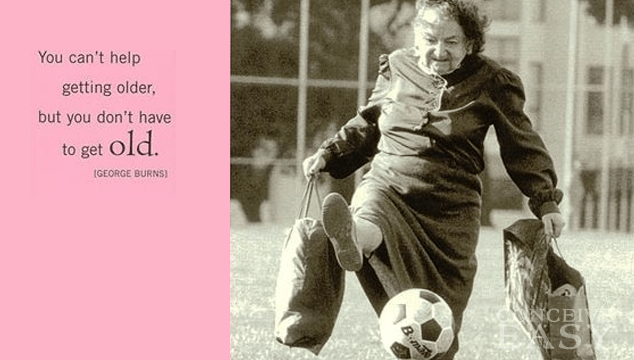Age. It is probably the single biggest factor that determines fertility, and it is definitely by far the factor that most people know the most about. More research has been done on the effects of age and fertility than probably any other factor, so it is a topic we know a lot about. Claim Your 20 Free Pregnancy Tests – Click Here
With the US fertility rate in freefall due to many women waiting later in life to conceive, getting pregnant older is becoming far more common these days. Let’s talk about it a little more in depth so that you can learn all about age and fertility too.

Women are born with a certain number of eggs to use in their lifetime. When they’re gone, they’re gone! When a woman starts to ovulate, she begins to use up that supply of eggs. Month by month, the eggs begin to dwindle away.
This is why a woman is most fertile in her 20’s, when the eggs are in great supply. As a woman ages, it gets harder and harder for her to become pregnant, because her eggs are dwindling in supply. By the time a woman reaches 30 years of age, her egg supply is usually nearly gone.

This is not to say that once a woman reaches 30, she is unable to conceive. Many women become mothers in their 30’s and even 40’s with no real problems. But, they are the minority when it comes to conceiving. Most doctors agree that around age 35 is the real turning point when it comes to conceiving a baby, since that is the time when a woman’s fertility drops the most drastically.
You only have about a 15 percent chance of getting pregnant in any ovulation cycle when you are in your thirties. In your forties, that chance is even lower, and by age 45, it is pretty much non existent.

Women in their late thirties and early forties also have a higher chance of having a child with a disability or chromosomal problems. This is because your body uses all of the “good” eggs first, and leaves the “bad” eggs, or eggs that might have problems to be used up last.
Older moms also have a higher chance of miscarriage, low birth weight and other problems. Also, moms that are over 40 are also at higher risk for pregnancy complications and pregnancy related health problems such as diabetes and high blood pressure.

The truth is that the older a woman is, the less likely she will be to have a successful and healthy pregnancy. If she does end up getting pregnant, it will take longer and also has the possibility to be a difficult road to travel down. Women who get pregnant later in life often face higher risks for both themselves and their babies. We are not saying that it is not impossible for a woman to get pregnant later in life, just that it is usually a little more difficult.










Comments